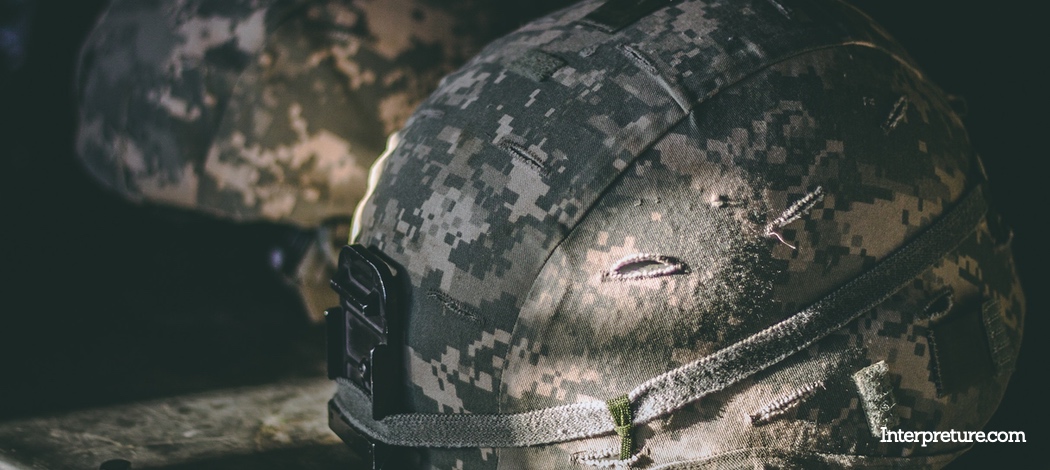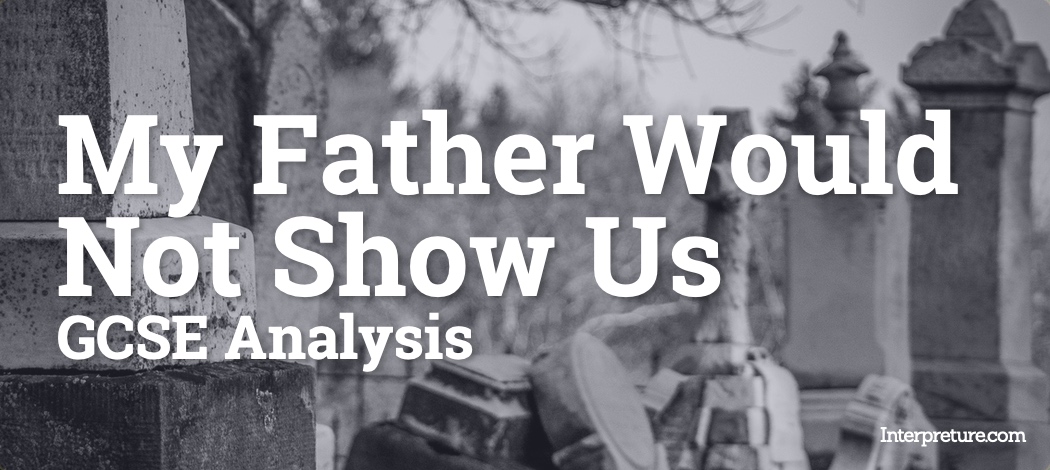‘The Manhunt (Laura’s Poem)’ by Simon Armitage explores the impact of the experience of war on a soldier, and in turn his relationship with his wife, and his ability to connect with others. Armitage is a Yorkshire-born poet whose early work was often very personal, but over the years his writing style has progressed to more often reflect broader societal ideas and issues.
This poem is part of the Relationships Poetry Anthology for the Edexcel English Literature GCSE .
‘The Manhunt (Laura’s Poem)’ Context
The title of the poem has a double meaning; normally it refers to a police ‘manhunt’ for a fugitive or criminal, however here it can be interpreted as a literal ‘hunt’ or ‘search’ for someone who has become ‘lost’ as a result of war and conflict.
The title includes “Laura’s Poem” because this poem was written by Armitage for a Channel 4 television documentary about the lives of soldiers and their families. Laura is the wife of a soldier who served in Bosnia and was discharged from the Army because of his physical injuries and poor mental health; and this poem is written from her perspective, about her husband. The full documentary ‘Forgotten Heroes: The Not Dead’ and a reading of the poem is available to watch on YouTube.

Glossary of Terms from the Poem
- Porcelain: A type of delicate ceramic, which is likely to shatter if dropped.
- Rudder: A hinged part of a boat or ship which is used for steering.
- Struts: A bar/rod which helps to give strength to a structure.
- Skirting: Travelling along the edge of something.
‘The Manhunt (Laura’s Poem)’ Analysis
“the frozen river which ran through his face”
The adjective “frozen” emphasises the permanent physical scarring on the man’s face, which in turn reflects the pain and brutality of war, in particular the harsh impact it has had on the soldier’s appearance. To run “through” a face, the most personal part of an individual, underlines how the experience of war, together with his physical injuries, have had a detrimental effect on the soldier’s personal identity and appearance. In addition, “through” indicates that these scars and wounds are more than just surface level, instead running deep and having a significant unseen psychological impact.
“the parachute silk of his punctured lung”
The use of plosive ‘p’ sounds is highly effective in this line because some readers may liken it the sound of gunfire or bullet damage, bringing the sense of war and conflict straight to the reader. In addition, the overall dissonance in the line with the unpleasant “chute” “ilk” and “ctured” sounds would make a reader feel still more immersed in the brutality of a war zone environment, thus encouraging empathy with the soldier.
“his grazed heart”
Similarly to descriptions of the face, the “heart” is another highly personal and symbolic aspect of the human body, so the fact that it has been “grazed” would again help a reader feel empathy for the soldier. It also begins to mark the transition in the poem from describing physical damage to describing mental damage and harm, in this case potential emotional damage. Readers who recognise the temporary nature of “grazed” are likely to feel hopeful for the soldier, which would be very effective at helping create an emotional connection.
“foetus of metal”
Many readers may be surprised at the use of “foetus” as a descriptor in this poem, particularly when birth and war are seemingly so far apart. However, the surprise at this inclusion helps Armitage to emphasise the huge impact that war has on individual soldiers and their families, particularly the unexpected impacts that a reader may not have thought of at first. The description relates to the previous line of a “scan” to find a bullet, which again would help generate sympathy, as rather than the happiness of a child there is the hurt and damage of a bullet. “Metal” has connotations of industry, construction and war, (and contributes to the semantic field of warfare) so the contrast with “foetus” would be very striking.
“unexploded mine // buried deep in his mind”
The end of the poem transitions to descriptions more focused on mental health and wellbeing, and this phrase is arguably one of the most significant lines because it helps a reader understand and appreciate the huge impact of war on the soldier’s mental wellbeing. The adjective “unexploded” emphasises the ongoing risk and danger, both to the solider and those around them, potentially surprising some readers who are not familiar with mental health issues. The use of “buried” is also significant because once again it has multiple interpretations; first that it is a deep and therefore impactful injury, and secondly that there may have been an attempt to ‘cover up’ this injury, potentially due to fear of stigma or misunderstanding.
Themes in ‘The Manhunt (Laura’s Poem)’
- Relationships: ‘The Manhunt (Laura’s Poem)’ is part of the relationships anthology. The poem deals directly with the relationship between a soldier and significant other (in this case the soldier’s wife), demonstrating how the experience of warfare can impact on family and personal relationships.
- Hurt and Illness: A typical byproduct of war and conflict is injury, both physical and mental, with the poem exploring both aspects through powerful descriptions.
- Love and Intimacy: This poem highlights how being open with a partner about physical or mental ill health is a highly intimate thing to do, with descriptions such as “only then” highlighting the time it has taken the pair to develop their closeness and confidence.
Quick Focus Questions
- Normal: What is the narrator searching for in the poem?
- Hard: Why might the phrase “only then” be repeated throughout ‘The Manhunt (Laura’s Poem)’?
- Challenge: Identify the rhyme scheme in the poem. How might this impact a reader and inform their interpretation of the poem?




